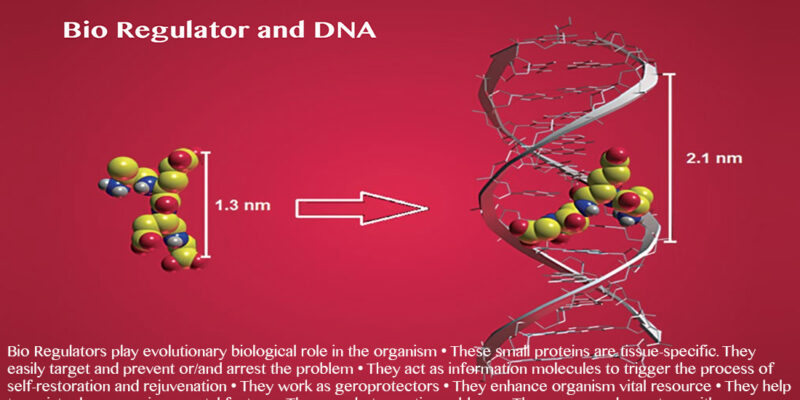Peptide Bioregulation
Peptide Bioregulation
Peptide bioregulators are organic substances that can stimulate biological processes in the body and enable self-recovery mechanisms. Thanks to the discovery of a method for producing bioregulators, scientists were able to synthesize a new type of drugs. They are able to slow down the rate of aging, prolong active longevity and reduce the risks of developing disorders associated with age-related changes.
The basis of any organism are proteins that form the structure of cells responsible for the transfer of other substances and the activation of biochemical reactions. The coordinated work of all organs and systems depends on the rate of protein synthesis, and peptides are the main regulators of the assembly of protein molecules. But as they grow older, the amount of their own regulatory peptides decreases, which negatively affects the process of cell renewal. This is aggravated by the fact that under the influence of stress factors some parts of DNA are deactivated and the process of reading the necessary information for protein production stops. This leads to a deterioration in well-being, hormonal disruption and other disorders.
The pool of regulatory peptides can be replenished from the outside. Peptide complexes renew cells and restore the functions of the corresponding organs, which leads to the elimination of health problems, improvement of well-being and prolongation of active longevity.
Molecular mechanism of action
The peptide complex consists of many short peptides that enter the stomach and intestines, are not degraded and are absorbed into the bloodstream. From the blood, peptides enter the target organs and, penetrating through the cytoplasmic membrane of cells, enter the nucleus, where they bind to nucleosomes (the structural part of the chromosome that contains the human genome) and regulate the process during which the information contained in the gene is converted into functional active proteins that renew cells and restore the functioning of organs. This process is called gene expression.
Know More: Discovery of peptidergic regulation of ageing
The uniqueness of Havinson’s short peptides lies in the ability to increase gene activity and activate dormant stem cells that strengthen the structure of tissues and organs. Under natural conditions, this phenomenon is observed in a limited number of people who are considered centenarians.

